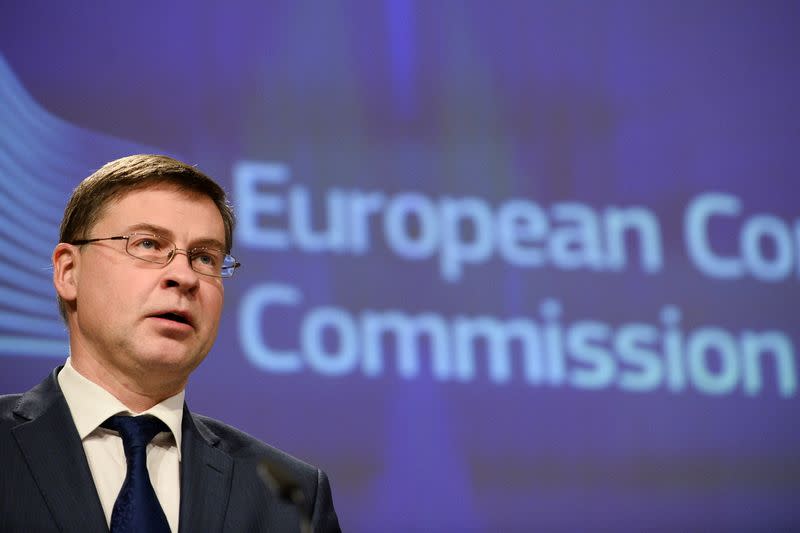EU sets vaccine export controls until end-March

By Philip Blenkinsop
BRUSSELS (Reuters) - The European Commission said on Friday it had agreed a plan to control exports of vaccines from the European Union, including to Britain, arguing it needed to do so to ensure its own supplies.
EU trade commissioner Valdis Dombrovskis told a news conference the export monitoring and controls were "time limited", initially lasting until the end of March, and applied to COVID-19 vaccines the EU had bought in advance.
The bloc could block the export of a vaccine if it determined that this could undermine the EU's own supplies.
"This is an insurance policy," EU health commissioner Stella Kyriakides told a news conference. The Commission has stressed that this is not an export ban.
Donations to COVAX, designed for poorer countries, will be exempted, as will a large number of EU neighbours, including Norway, Switzerland and countries of the western Balkans and North Africa. However, Britain will not be exempted.
Drugmakers will have to request export authorisation in the EU country where the vaccine is manufactured. That country would consult with the Commission to take a decision in two working days.
Belgium, where a large Pfizer plant is based, had already notified the Commission of a planned export. The plant makes vaccines for Britain and Canada.
The measure, likely to take effect on Saturday, has already come under criticism, seen as a repeat of criticised controls of protective equipment such as masks at the start of the pandemic.
The International Chamber of Commerce said the move risked triggering a chain of retaliatory action by other countries that would erode essential vaccine supply chains.
The European Union has publicly rebuked Anglo-Swedish AstraZeneca for failing to deliver vaccine shots as promised, with a shortfall of up to 60% in the first quarter. EU countries have also received fewer deliveries of the Pfizer-BioNTech and Moderna vaccines than expected.
Companies will also have to detail their vaccine exports over the past three months.
(Reporting by Philip Blenkinsop and Robin Emmott; Additional reporting by Sabine Siebolt; Editing by Peter Graff)


